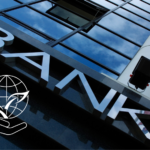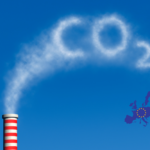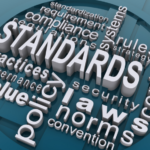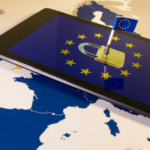Over the past year, “ESG backlash” has dominated headlines. Critics claim environmental, social, and governance (ESG) practices are distractions, or worse, political theater. In the U.S., ESG has been weaponized in political debates, while Europe is doubling down on regulation and disclosure mandates.
But amid the noise, one truth holds firm: sustainability is not a passing trend—it’s a fundamental, long-term shift.
“Sustainability is no longer about doing less harm. It’s about doing more good.”
— Jochen Zeitz, CEO of Harley-Davidson
In fact, paradoxically, the backlash itself may be accelerating ESG integration. I’ve seen it firsthand in my two decades advising companies across industries—from manufacturing and finance to consumer goods. Those who once treated ESG as a communications strategy are now embedding it into core business operations. The critics may have unintentionally sparked a reckoning—and refinement.
The Backlash Is Loud, but Not Decisive
There’s no denying the pushback. Several U.S. states have proposed or passed measures limiting the use of ESG in public investment strategies, and the term “woke capitalism” is now common in political discourse. Meanwhile, U.S. sustainable funds recorded their first annual net outflows in 2023—evidence that the debate is affecting investor flows even as leading companies push ahead (Morningstar).
But here’s what rarely makes the headlines: global businesses aren’t pulling back. Climate risk, regulatory shifts, stakeholder pressure, and even insurance premiums increasingly demand sustainability as a strategic imperative. Large asset managers also report continued corporate momentum toward net zero despite the noise (Financial News London on LGIM).
Take this case:
In early 2024, a global consumer electronics firm I consulted faced mounting scrutiny for weak ESG disclosures. The backlash forced them to revisit their KPIs—and as a result, they implemented a climate risk dashboard across operations. Six months later, their board reported stronger alignment between sustainability and enterprise risk management (ERM), improving investor confidence.
This isn’t just optics. It’s evolution under pressure.
Why Backlash Can Be Constructive
Like a stress test, backlash exposes weaknesses in ESG initiatives. Companies with shallow, checkbox strategies often stumble under scrutiny. But those with embedded, evidence-driven systems emerge stronger.
Here’s how backlash is pushing ESG forward:
-
Clearer KPIs – Firms are moving from vague ambitions to specific, auditable goals (e.g., Scope 1 & 2 emissions reductions by 25% by 2026).
-
Better communication – ESG is now being framed in terms of risk mitigation, innovation, and cost savings—not just altruism.
-
Stronger governance – Boards are elevating ESG to C-level strategy, not just corporate responsibility.
As Harvard Business Review notes, organizations that must justify ESG spending often become more effective in execution.
The Net Zero Imperative
According to Legal & General Investment Management (LGIM), most companies remain committed to their net-zero goals—despite louder opposition (Financial News London). Meanwhile, the IEA’s Renewables 2024 shows deployment remains robust and costs are stabilizing after the commodity and financing spikes of recent years.
Some structural forces simply can’t be ignored:
-
Carbon pricing pressure: The EU Emissions Trading System continues to price carbon materially (the 2024 average was roughly in the €60–70/t range).
-
Climate damage: Munich Re estimates total economic losses of around $250bn and insured losses near $95bn in 2023 (Munich Re).
-
Regulatory convergence: From the EU’s Corporate Sustainability Reporting Directive (CSRD) to the U.S. SEC climate disclosure rules, the direction of travel is clear.
This isn’t virtue signaling. It’s business survival.
Global Divergence, Shared Direction
It’s true that ESG is politically polarized in the U.S., while Europe and Asia are institutionalizing it.
-
Europe: The CSRD is expanding to tens of thousands of companies, requiring granular sustainability data. For SMEs, see my analysis on why the EU’s new standard is a game changer.
-
Asia: Markets like Singapore and Japan are scaling green finance frameworks and mandatory climate disclosures.
But here’s the kicker: multinationals must harmonize their sustainability efforts across borders. A consumer brand can’t market clean energy in Germany while ignoring emissions in Texas. Supply chains, consumers, and investors demand consistency. Sustainability becomes not a regulatory burden—but a unifying force for operational excellence and value creation.
What Business Leaders Should Do Now
Here are 4 actions companies should prioritize today:
-
Double Down on Data & Reporting
Use GHG Protocol, SASB, and TCFD frameworks to ensure robust, auditable ESG metrics. -
Link ESG to Value Creation
Demonstrate how sustainability drives innovation, reduces costs, or improves market positioning. -
Prepare for Global Regulation
Stay ahead of rules like CSRD, SEC disclosures, and IFRS S1/S2 standards, or risk penalties and reputational fallout. -
Communicate Authentically
Avoid greenwashing. Admit where you’re falling short, and back claims with data or third-party audits.
ESG Backlash = Acceleration, Not Retreat
As counterintuitive as it may seem, the ESG backlash is helping sustainability evolve. It forces rigor, transparency, and integration.
Think of it like antibodies fighting infection. The stronger the resistance, the stronger the system becomes.
The future of business will not be led by those who retreat from sustainability—but by those who lead it with integrity, accountability, and data.
In 20 years of sustainability consulting, this truth holds:
Transformational ideas always meet resistance—right before they become mainstream.









